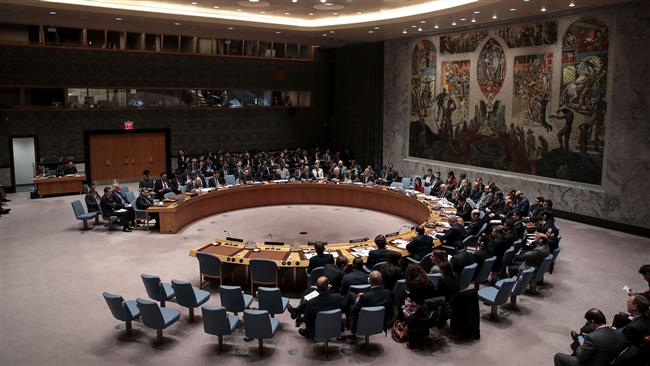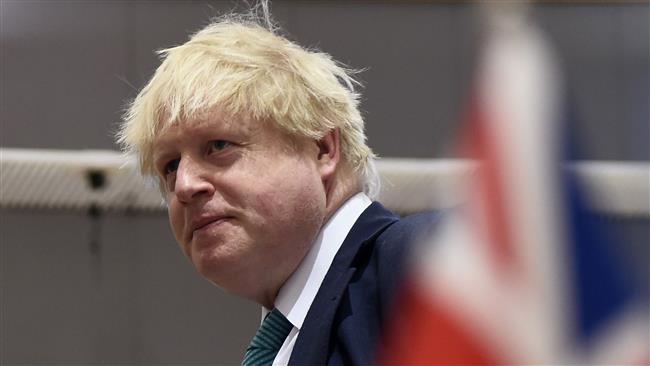'US seeking sanctions to drag Europe into war with Russia'
Foreign ministers of the Group of Seven industrialized countries have ignored calls by Britain and the United States for imposing sanctions on Russia over the crisis in Syria. The call for fresh sanctions was triggered by last week’s chemical incident in Khan Shaykhun in the northwestern Idlib Province, which left over 80 people dead. The United States and its allies accuse Syria of having carried out the attack, whereas Damascus argues that a Syrian airstrike hit a chemical weapons depot belonging to the militants. Moscow has verified that account. Press TV has talked to Tony Gosling, investigative journalist, as well as Brent Budowsky, columnist of The Hill, to get their opinions on US-Russia relations when it comes to Syria, and whether they believe the crisis is bringing the two closer to a direct war.
Tony Gosling believes that the United States has for a long time been trying to drag Europe into a war with Russia, adding that the G7 countries have done a “fantastic job” not going in that direction by objecting to new sanctions against Moscow.
He also noted that US Secretary of State Rex Tillerson had been planning to push everybody to impose sanctions on Russia at the meeting of G7 foreign ministers.
The analyst further denounced the US attack against a Syrian military air base as “totally irrational,” warning that such hasty actions could escalate into a full-fledged global war.
He noted that it does not look as if there is any evidence pointing to President Bashar al-Assad’s involvement in the alleged gas attack.
Therefore, he said, even talks of potential further strikes against Syria are “not acceptable.”
It seems much more likely, Golsing explained, that the militants have been behind the chemical attack, given the fact that they are intent on dragging the United States deeper into the conflict in Syria.
The journalist also criticized Western media for not doing a “balanced” job on the issue, explaining that people in the West are getting only one account and that is “Assad is responsible.”
The analyst recalled the investigations that revealed militants had been responsible for the chemical attack in Ghouta in 2013, concluding that last week’s attack could have been a false-flag operation.
According to the analyst, it seems that politicians around the world spend far too much time worrying about what’s being said by the media rather than investigating the facts.
Meanwhile, Brent Budowsky stated that European countries wanted to give diplomacy a chance, explaining that imposing sanctions on Russia would have made it harder for Moscow to work with Washington to try to stop what is going on in Syria.
He also emphasized that if Russia plays a “constructive role,” which is what the Europeans want, there won’t be any sanctions and US-Russian relations could be on a better course than they are now. Otherwise, there will be more trouble.
Budowsky further opined that it would be “useful” to have international arms inspectors in Syria to find the truth about last week’s chemical incident.
He dismissed the idea that the United States is supporting the Daesh terrorists as “ridiculous,” maintaining that the last thing President Trump wants is to escalate the conflict in Syria and worsen US relations with Russia.
Budowsky expressed hope that the recent events do not escalate into a direct confrontation, and that Russia would help work out a political solution to the conflict in Syria.
VIDEO | Biden exits with ‘massive surge’ of arms for Ukraine
Iran warns of ‘NPT withdrawal’ if snapback activated
Over 60,000 Palestinians in northern Gaza on verge of death as Israeli siege rages on
Iran asserts will continue to support Syria until terrorists vanquished
Role of oil terminals in Iran’s plan to become energy hub
VIDEO | Jordanian committee organizes speech festival in solidarity with Gaza, Lebanon
Syrian, Russian air forces carry out heaviest strikes since terror resurgence
VIDEO | Italy's forum denounces journalists’ massacre in Gaza














 This makes it easy to access the Press TV website
This makes it easy to access the Press TV website